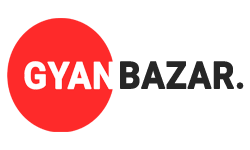France has always been at the forefront of European politics, with a rich history of social, cultural, and political development. In modern times, the country has seen a series of political powerhouses emerge who are shaping the course of its politics in significant ways. From the enigmatic Emmanuel Macron to the far-right challenger Marine Le Pen, and the radical leftist Jean-Luc Melenchon to the conservative force of Laurent Wauquiez, these leaders are instrumental in determining the country’s future.
Emmanuel Macron: The Enigmatic President
Emmanuel Macron has been the President of France since 2017, having served as Minister of the Economy, Industry, and Digital Affairs under President Francois Hollande from 2014 to 2016. Macron’s rise to power was remarkable, given that he was a relative newcomer to politics before becoming president. He is a former investment banker and civil servant who worked for the French Ministry of Economy, Finance, and Industry before joining Rothschild & Co. as an investment banker.
Macron’s political philosophy is a mix of liberalism, social democracy, and progressivism. He advocates for economic reforms, international cooperation, and a liberal approach to social issues such as same-sex marriage and abortion. His policies have been met with both praise and criticism from various factions of the French electorate. However, his approval ratings have been relatively stable, with a recent poll showing that 45% of French people have a favorable opinion of him.
Marine Le Pen: The Far-Right Challenger
Marine Le Pen is the leader of the far-right party, National Front (now known as National Rally), and has been a prominent figure in French politics for over a decade. She is the daughter of Jean-Marie Le Pen, who founded the National Front in 1972. Marine Le Pen has taken the party in a more moderate direction, distancing herself from some of her father’s controversial views.
Le Pen’s political platform is built around French nationalism, euroscepticism, and anti-immigration policies. She has advocated for tighter controls on immigration and stricter border security. Le Pen’s policies have been highly controversial, and she has been accused of promoting xenophobia and racism. Despite this, Le Pen remains a significant force in French politics and is currently one of the leading contenders in the upcoming presidential election.
Jean-Luc Melenchon: The Radical Leftist
Jean-Luc Melenchon is the leader of the left-wing political party, La France Insoumise (France Unbowed), and has been a prominent figure in French politics for over 30 years. Melenchon has served in the French Senate and the European Parliament and has also run for president twice, in 2012 and 2017.
Melenchon’s political platform is built around socialism, progressivism, and internationalism. He advocates for a more significant role for the state in the economy, as well as stronger social protections and environmental policies. Melenchon has been a vocal opponent of neoliberalism and globalization, arguing that they have contributed to inequality and the erosion of democratic institutions. He has also been a vocal critic of French President Emmanuel Macron and his policies.
Melenchon’s rhetoric is often radical, and he has been accused of promoting a confrontational and divisive style of politics. However, he remains a popular figure among leftist voters in France, and his party currently holds 17 seats in the National Assembly.
Laurent Wauquiez: The Conservative Force
Laurent Wauquiez is the leader of the center-right party, The Republicans (formerly known as the Union for a Popular Movement), and has been a prominent figure in French politics for over a decade. Wauquiez has served as Minister of Higher Education and Research and President of the Auvergne-Rhône-Alpes region.
Wauquiez’s political platform is built around conservatism, national identity, and economic liberalism. He advocates for lower taxes, deregulation, and a more significant role for the private sector in the economy. Wauquiez has also been a vocal opponent of immigration, arguing that it threatens French identity and culture.
Wauquiez’s leadership of The Republicans has been marked by controversy, with some accusing him of promoting a divisive and intolerant brand of conservatism. Despite this, he remains a significant force in French politics and is considered a potential presidential candidate.
Conclusion
The political powerhouses in France are shaping the country’s politics in significant ways, with each leader promoting their own unique vision for the future. From the enigmatic Emmanuel Macron to the far-right challenger Marine Le Pen, the radical leftist Jean-Luc Melenchon to the conservative force of Laurent Wauquiez, these leaders are instrumental in determining the country’s future.
As France prepares for the upcoming presidential election, it is clear that the country’s political landscape is diverse and complex, with a range of political forces vying for power and influence. Whatever the outcome of the election, it is clear that the political powerhouses in France will continue to shape the course of politics in the country for years to come.

